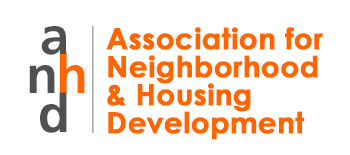Yesterday, the city finalized approval for the controversial “poor door” development proposed by Extell on the Upper West Side. While technically allowed through a loophole under current rules, there is little argument this structure violates the spirit of the new administration’s dedication to combating inequality. One quote, from a different poor door developer, is telling:
‘No one ever said that the goal was full integration of these populations,’ David Von Spreckelsen, senior vice president at Toll Brothers, another developer specializing in luxury residencies, told The Real Deal in 2013. ‘So now you have politicians talking about that, saying how horrible those back doors are. I think it’s unfair to expect very high-income homeowners who paid a fortune to live in their building to have to be in the same boat as low-income renters, who are very fortunate to live in a new building in a great neighborhood.’ – Daily Mail
Mr. Von Spreckelsen should be a mensch and acknowledge that what is actually very fortunate – for all of us – is to be able to live in a city like New York, where neighborhoods and buildings have residents from all walks of life, mingling freely and creating a vibrant and diverse environment. Our citizens add value to our neighborhoods, they don’t subtract from them.
And what’s even more fortunate is being able to develop in a city like New York, with a strong market, and safe and desirable environment. These are provided by people like our firefighters, buildings inspectors, nurses & health care attendants, supers, porters, doormen, retail professionals, small business owners, construction workers, artists, and everyone else who works – and pays taxes – to make New York the city that it is. These people deserve great neighborhoods no less than those able to afford multi-million dollar condos. To then treat them as second class citizens in their own homes stretches the definition of chutzpah. But it’s good to know what poor door developers really think of New Yorkers – that “great neighborhoods” should be reserved for the very wealthy, while everyday citizens should be ever grateful for their good fortune to be able to live in the neighborhoods they support and spent decades revitalizing, so that companies like Extell and Toll Brothers can have lucrative development opportunities.
And it should be pointed out that these developments aren’t done out of the goodness of the real estate industry’s heart. When developers build in Inclusionary neighborhoods, they get tax breaks and zoning bonuses that are well above and beyond what the city usually provides. Part of that deal is we then build for a variety of people, not just the very wealthy. And part of that deal should be that everyone in these developments is treated equally.
And the amazing part is, building a poor door development doesn’t even save a developer much, if any, money. Economies of scale dictates that it’s cheaper to build one uniform building, with one entrance, rather than two. All poor door developments serve to do is segregate our citizens, on the ridiculous pretense that those people who choose to buy apartments in the most diverse city on earth are doing so in order to live in a sterile and homogenous environment. And in fact, many of the most prominent mixed-use developers in New York, such as Two Trees Development, who is building the new Domino Sugar Factory Development, have testified to this publically, and won’t even consider building poor door developments.
It’s time to end this embarrassment. The city needs to pass legislation and write zoning code to outlaw the poor door once and for all – not just in some areas, or for some types of developments, but everywhere. We have no place for second class citizens in New York City, and developers like Extell and Toll Brothers should realize this if they want to do business here.
Blogger: Moses Gates
Blog team: Benjamin Dulchin, Jonathan Furlong, Moses Gates, Sandra Park, Ericka Stallings, Jaime Weisberg, Barika X. Williams, Eric Williams. Editor, Anne Troy
 ANHD 2016 Building the Community Development Movement
ANHD 2016 Building the Community Development Movement
